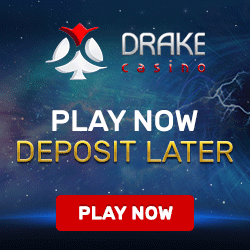NBA Flags Integrity Risks in Prediction Markets in Letter to CFTC
May 5, 2025 Marija D

The National Basketball Association (NBA) has become the second U.S. professional sports league, following Major League Baseball (MLB), to formally voice its concerns to the Commodity Futures Trading Commission (CFTC) about the unchecked expansion of sports prediction markets. The league submitted a letter, publicly available via the CFTC’s portal, cautioning that the current regulatory vacuum poses serious integrity threats to the sport.
NBA Vice President and Assistant General Counsel Alexandra Roth emphasized that prediction markets, unlike regulated sports betting, operate with minimal oversight and carry heightened risks. “Protecting the integrity of NBA basketball and preserving public confidence in our league and in our sport is our highest priority,” Roth wrote. These remarks underscore the NBA’s growing discomfort with markets that replicate the mechanics of sports betting without being subject to similar controls.
Self-Certified Contracts and the Threat to League Integrity
Platforms such as Kalshi and Crypto.com currently offer sports event contracts that resemble betting markets, including outcomes on NBA games. These platforms leverage the CFTC’s self-certification process to rapidly expand their offerings. Unlike licensed sportsbooks, which must seek approval from state regulators for new bet types, federally regulated exchanges can unilaterally introduce new markets and only face post-launch intervention from the CFTC.
Roth pointed out that this regulatory loophole allows exotic and sensitive markets—such as single-game outcomes, officiating decisions, or player injuries—to emerge unchecked. “The way new contracts come to market offers a stark contrast,” Roth explained, noting that this could soon pave the way for potentially harmful markets like player props.
This concern is not abstract. In 2024, former Toronto Raptors player Jontay Porter was banned for life from the NBA after intentionally underperforming to manipulate prop bets. His case, one of the largest betting scandals in recent memory, was followed by reports that Charlotte Hornets guard Terry Rozier may also be under investigation for suspicious betting activity. Although Roth’s letter did not name specific individuals, the underlying concern was clear.
Absence of Reporting Standards Fuels Concern
A key issue raised by the NBA is the apparent lack of mandatory integrity reporting protocols within prediction markets. “We are not aware of any requirement that either exchanges or brokers report potentially suspicious trades or trading patterns to an affected league,” the NBA stated in its letter. Without such mechanisms, leagues are largely in the dark and have minimal capacity to monitor or investigate irregularities.
In contrast, legal sportsbooks typically engage with third-party integrity monitoring firms and must adhere to reporting standards defined by gaming regulators. The NBA, for instance, works with Sportradar and benefits from tools designed to flag unusual betting activity. However, prediction markets lack equivalent oversight infrastructure.
Adding to the confusion is Kalshi’s recent collaboration with Integrity Compliance 360 (IC360), a firm that specializes in monitoring betting integrity. IC360’s co-CEO Scott Sadin confirmed that “our integrity monitoring and Prohibet services are live,” yet the NBA’s submission suggests it may not be fully informed of these efforts. IC360’s partnership with Kalshi also coincided with the sudden departure of founder Matt Holt, raising further questions within industry circles.
Seeking Regulatory Parity with State-Licensed Betting
While the NBA has long ed regulated sports betting—Commissioner Adam Silver famously advocated for legalization in a 2014 New York Times op-ed—it views prediction markets as a new and underregulated frontier. “The integrity risks posed by sports prediction markets are more significant and more difficult to manage than those presented by legal, regulated sports gambling,” Roth wrote.
The league urged the CFTC to address these disparities by implementing a comprehensive regulatory framework that mirrors the structure used in state gaming jurisdictions. Roth further requested a direct dialogue with the CFTC to explore possible reforms.
Arizona, Colorado, Iowa, New Jersey, and Virginia and seeks federal approval to expand without breaching existing licensing obligations.
As the CFTC continues to leave its public comment portal open—despite having canceled its April roundtable without rescheduling—the pressure mounts for the commission to bring clarity to a rapidly evolving segment of the wagering landscape.
Source:
NBA becomes second US sports league to petition CFTC over prediction markets, igamingbusiness.com, May 2, 2025.















